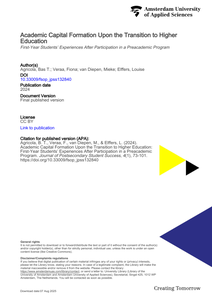The field of applied linguistics is increasingly adopting open science practices. As open access publication gains traction, ethical issues emerge that need to be addressed by the field. This viewpoint paper addresses the concern that open science is not equally open for everyone. This paper describes how open access publication is increasingly being commercialized and explains how open access publication coincides with systemic inequality. We offer the following viewpoints for the field to consider:1.) We are morally obligated to make our research output accessible.2.) Hybrid, Gold, and Green open access publishing lead to systemic inequality in open access publishing, benefiting commercial publishers and those working in research-intensive universities and rich countries.3.)Diamond open access publication removes the systemic inequalities; hence, Diamond open access should be prioritized over Hybrid, Gold, and Green open access publication models.4.)We should move away from publish-and-read agreements and Green open access publishing, because they prevent system change.5.)Through our choices in our work as researchers, editors, reviewers, authors and teachers, we can contribute to the transition towards truly equitable open access publishing practices.6.)Senior researchers are in the position and have the moral obligation to be drivers of these changes.
DOCUMENT

Over the past decade, the Institute of Network Cultures has led several applied research projects about new (digital) publishing models: the Hybrid Publishing Toolkit, Urgent Publishing and Going Hybrid. Time and again, publishers, designers, coders, authors, and readers bring up the same problem: the ‘book publishing industry’ fails to fulfill the promise of a rich multi-media reading experience in the digital era. Many digital tools for publishing experiments remain marginal, while traditional publishers and big tech platforms shy away from new formats. Audio and video integration — technically possible for a good three decades — is all but absent. Book sales keep decreasing. Young people read less and less, both online and offline. All in all, it becomes increasingly harder to sustain indy and experimental publishing practices while the regressive gap between so-called real paper books and the ‘virtual’ social media swiping keeps growing. Gutenberg the Second, where are you now that we need you?
LINK
The transition from secondary education to the first year of higher education is a phase in which students are faced with many challenges. First-year students may lack the academic capital that is needed to understand explicit and implicit rules of higher education. We investigated students’ participation in a preacademic program and the development of their academic capital. In a mixed method study, we showed that first-year students who participated in a preacademic program perceived peer mentors and teachers to be relevant sources of information, learned how to overcome educational barriers, and became more acquainted with explicit and implicit college requirements.
LINK
Urgent publishing pertains both to timeliness and relevance. What strategies are available to publishers in the cultural and research domains to conceive, produce, and position their contents in an urgent way? Revolving around the key notions of relations, trust, and remediation, Here and Now? Explorations in Urgent Publishing presents methods and prototypes that counter the contemporary speedy information sphere in new and different ways. It develops a situated account of hybrid publishing, where authors, editors, publishers, designers, and readers operate together.
DOCUMENT

Welcome to the fourth special issue of the Pervasive Labour Union zine, Urgent Publishing Debris. In May 2019, the Making Public: Urgent Publishing Conference took place. Among others, it asked the following questions:-"How to realize sustainable, high-quality alternatives within this domain of post-digital publishing?"-"How can designers, developers, artists, writers and publishers intervene in the public debate and counter misinformation in a meaningful and relevant way?"-"What are new publishing strategies for our current media landscape?"-"How to design for urgency without succumbing to an accelerated hype cycle?"The presentations, debates and conversations have all been officially documented in blogposts on the Institute of Network Cultures website, videos and pictures. But what about the notes, the pictures, the recordings and the tweets of the conference's visitors? What do they have to tell us about how each person experienced the conference? This special issue aims to provide new readings of the event by creating remixes of the official archival sources with the 'unofficial' debris circulating around it.In order to facilitate the navigation between articles, making connections visible where they might have only been implicit, the editors have decided to define eleven overarching topics (Social/Community, Activism, Post-truth, New forms, Authorship/Makers, Speed, Positioning, Locality, Relationality, Authoritarianism, Parasite). Each of the topics was attributed a colour and the source material is highlighted accordingly.Furthermore, each remix has a dispersed editors' note, wherein each editor reflects in more detail on the program, how it connects to the conference's topic and how it might answer any of the aforementioned questions.
MULTIFILE

The COVID-19 pandemic has forced higher education (HE) to shift to emergency remote teaching (ERT), subsequently influencing academic belonging and social integration, as well as challenging students' engagement with their studies. This study investigated influences on student engagement during ERT, based on student resilience. Serial mediation analyses were used to test the predictive effects between resilience, academic belonging, social integration, and engagement.
MULTIFILE

This article describes the relation between mental health and academic performance during the start of college and how AI-enhanced chatbot interventions could prevent both study problems and mental health problems.
DOCUMENT

The transition from secondary education to the first year of higher education is a phase in which students are faced with many challenges. First-year students may lack the academic capital that is needed to understand explicit and implicit rules of higher education. We investigated students’ participation in a preacademic program and the development of their academic capital. In a mixed method study, we showed that first-year students who participated in a preacademic program perceived peer mentors and teachers to be relevant sources of information, learned how to overcome educational barriers, and became more acquainted with explicit and implicit college requirements.
DOCUMENT
